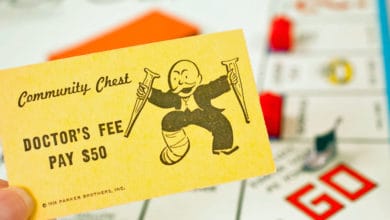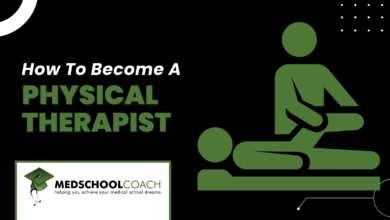By Suleman Ilyas
The thought of an upcoming residency interview can be daunting, but adequate preparation and a strong sense of self-confidence should alleviate most if not all concerns. The interview of course is an integral part of the match process and is a chance for not only the applicants to sell themselves but also for the programs to advertise their most coveted attributes. In the 2018 NRMP Program Directors Survey, 96% of all PDs surveyed across all specialties cited the ‘interactions with faculty during the interview and visit’ as an important factor when ranking an applicant, with an average importance of 4.8 out of 5. Regarding the USMLE/COMLEX Step 1 Score, 78% of PDs surveyed across all specialties ranked it as an importance factor when ranking an applicant, with an average score of 4.1 out of 5. Board scores are more highly weighted when selecting applicants for interviews and less when ranking according to the latest objective data, which seems to be in accordance with what we hear from upperclassmen and residents. Step scores can help land the interview, but after that hurdle, programs are looking for affable team players, who show a passion for learning medicine and who display professionalism and maturity. You don’t have to have the charisma of Kevin Hart to get the job, but you do want to come across as an individual who enjoys working with others, and who will show up to work on time and work hard. Professionalism must always be on display- arrive to the interview early with a pen and your portfolio (optional); be courteous to everyone you interact with on interview day, no matter how small the interaction; dress professionally and are groomed appropriately; and just try to be your best self at all times on this day.
The good news is that much of the interview day itself is spent by the program describing its unique features and much-envied board pass rates, along with the areas where residents will rotate, as well as guided tours with charming chief residents; interesting rotations that may not be offered at other programs; and lunch with the currents residents who are a great source of the nitty-gritty details of the residency. These programs have practiced their presentations and tours and are delivering a well-thought out message on interview day on why you should rank their program. The typical interview day will consist of your arrival and then meet with greet with faculty and residents, often with breakfast; a program overview with the APDs and PDs, which can be quite comprehensive; resident or morning report where get a glimpse into your possible future; and tours of the facility followed by the interviews with faculty. Lunch is provided, and interviews are usually before or after lunch, although some can be done as soon as the program overview has been presented. Residency interviews days can range from 5 to 8 hours, with most in the 6-7 hours range. Thus, for most of the day, you are taking in a presentation or sitting by and watching others speak and “sell” themselves to you- not that much pressure here. Just be mindful to look happy and engaged, ask relevant questions if you have them and be respectful to everyone you see on the day. Often during morning report, the interviewees will have a chance to crack the case, so speak up if you are comfortable and remember to let others answer as well. And you can always ask the residents for those precious details that might not readily be available online- 1) how accessible is it to set up research 2) what’s the living situation like 3) will I need a car, etc.
All programs will offer an interview with a core member of the committee or faculty, and often a second interview as well. Some programs are still known to have the ‘old-school’ interviews where you sit across a large desk from multiple faculty members, “Yikes!” Most interviews are usually around half an hour but can vary depending on how well the conversation is going. You may be asked if you have questions at the end, but if the conversation is going really well there may not be any time for questions. Interviews are not only about the answers you provide and the flow of the conversation, but also about how you deliver those answers. Remember the basics: shake hands with your interviewer when you walk in; sit up straight and no slouching for the next thirty minutes; maintain natural eye contact throughout the conversation and speak calmly and comfortably. It’s okay to collect your thoughts after a question is asked, particularly if it’s a behavioral-type question. A well-thought out answer after a pause is always better than a rambling response with a lot of ‘ums.’ Pausing also let’s your speech seem calmer and less aggressive or defensive. As for the questions themselves, be ready to answer the basics! “Why did you choose this specialty” “Why this program?” “Talk about your research” “Where do you see yourself in 5-10 years” are some classics that you should have mastered by now. Also, be ready for behavioral questions, such as “Talk about a difficult patient case or interaction you may have had, and what you learned from it” or “How would you handle an argument or confrontation with a fellow member of your team”. I found my sub-internships in medicine to be great sources of answers for these behavioral questions, as these rotations tended to be those in which I was most integrated into the team and group dynamics.
After completing your first few interviews, you look back and laugh at your prior self over how nervous you were. You will become much more relaxed as the season plays out after you have a couple of interviews under your belt. This is also a time to visit new cities and observe life in different areas of the country, and to imagine yourself away from where you currently work. It’s a fun and exciting time and remember to enjoy it!



